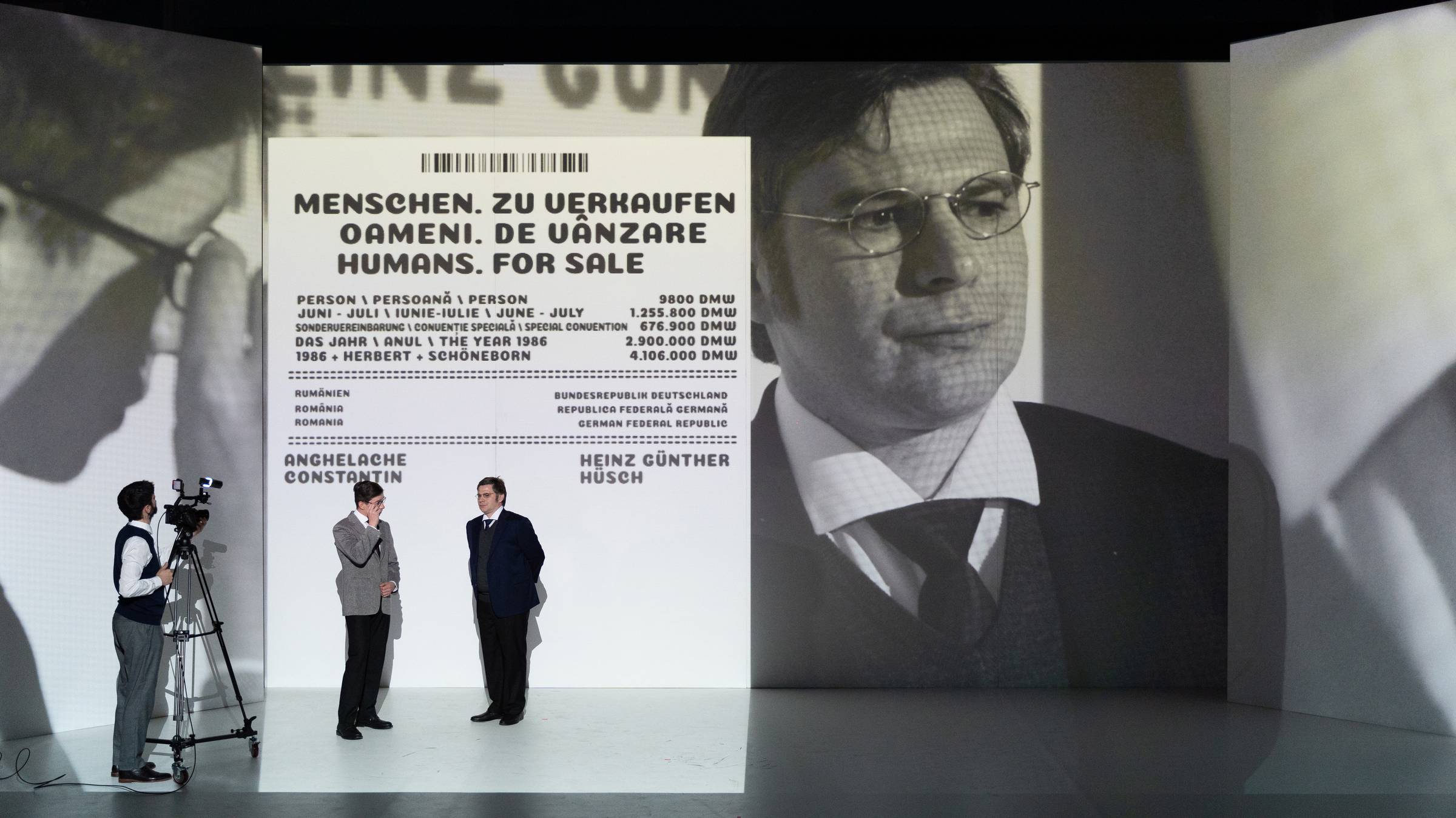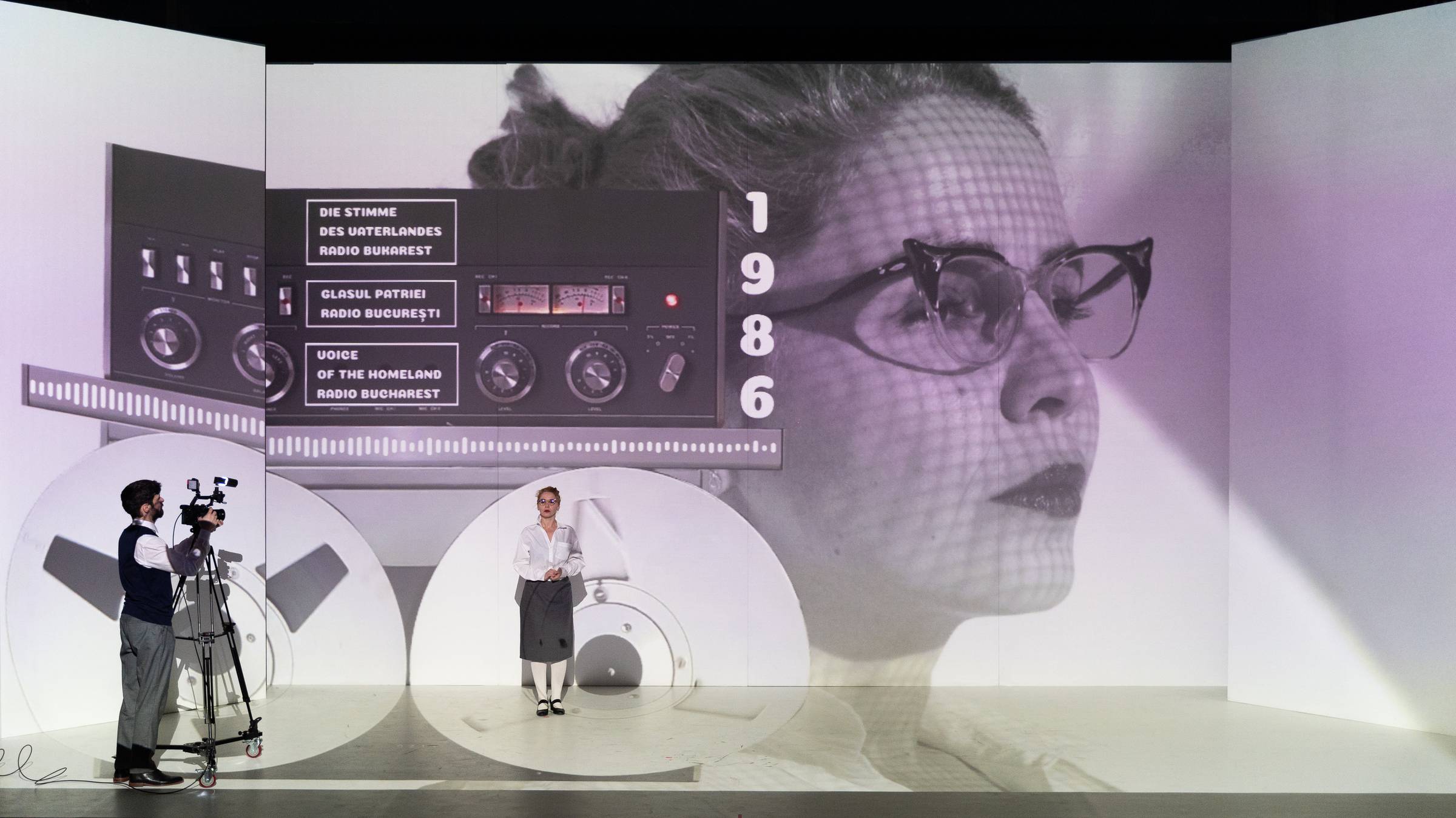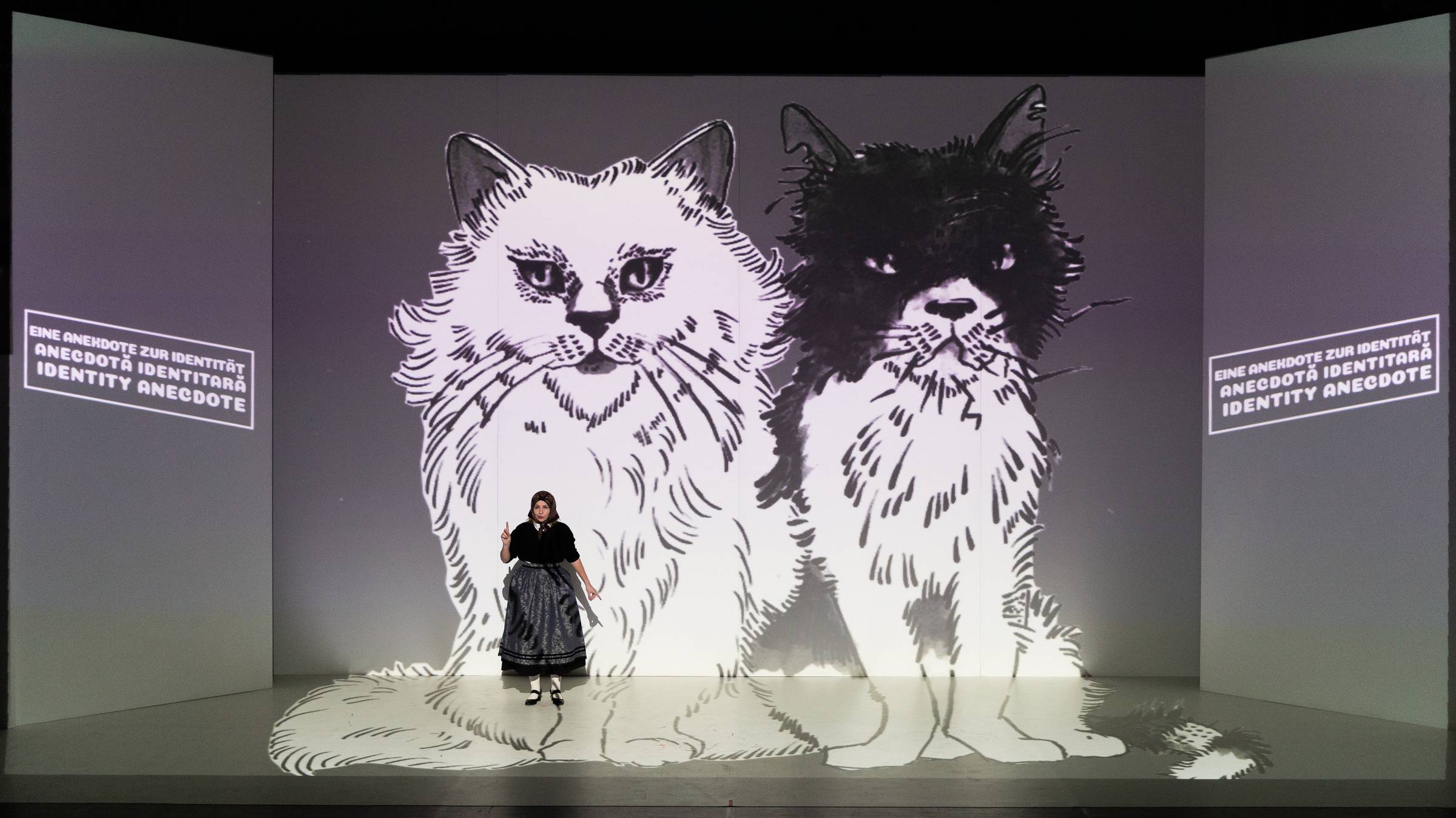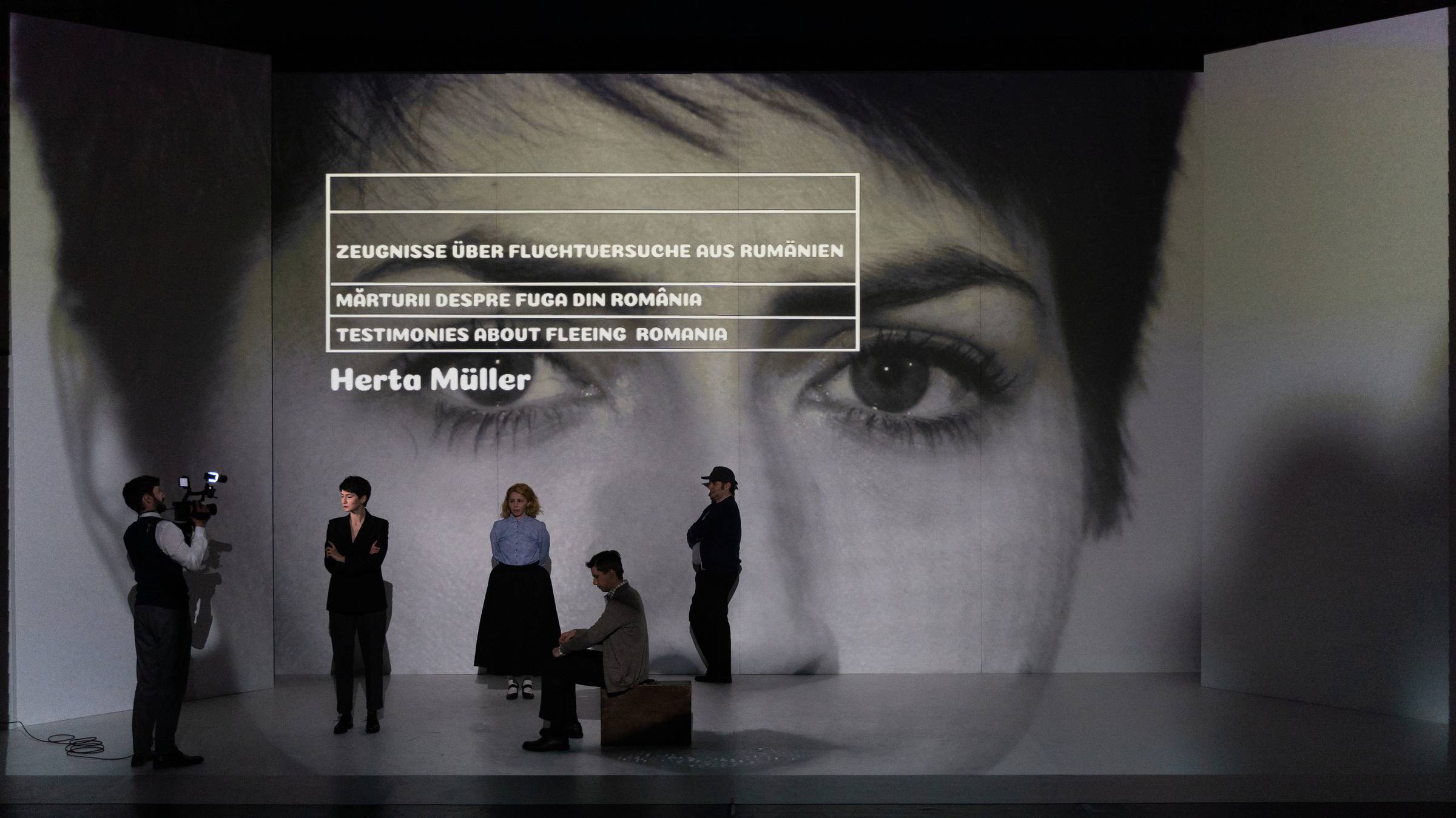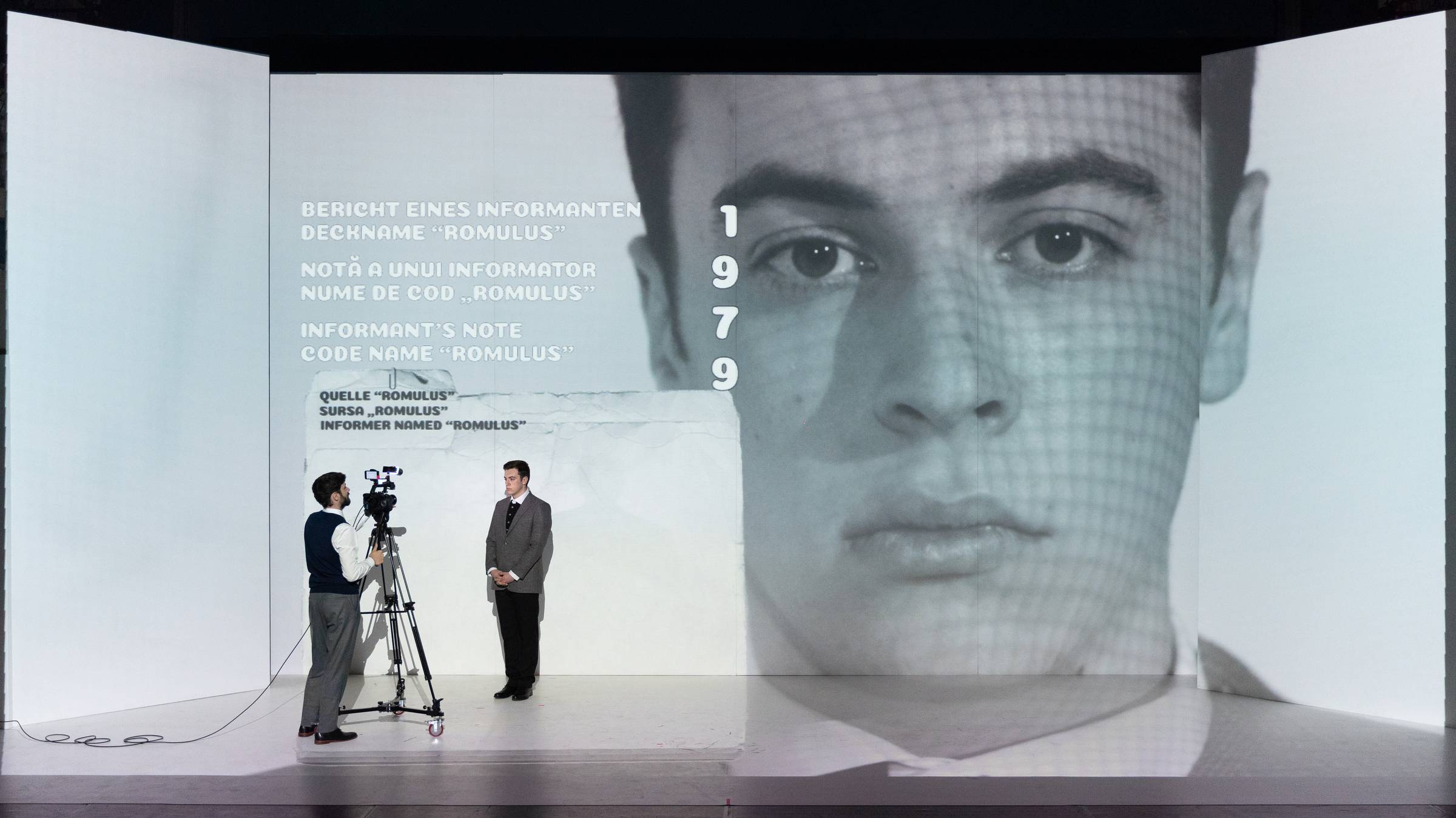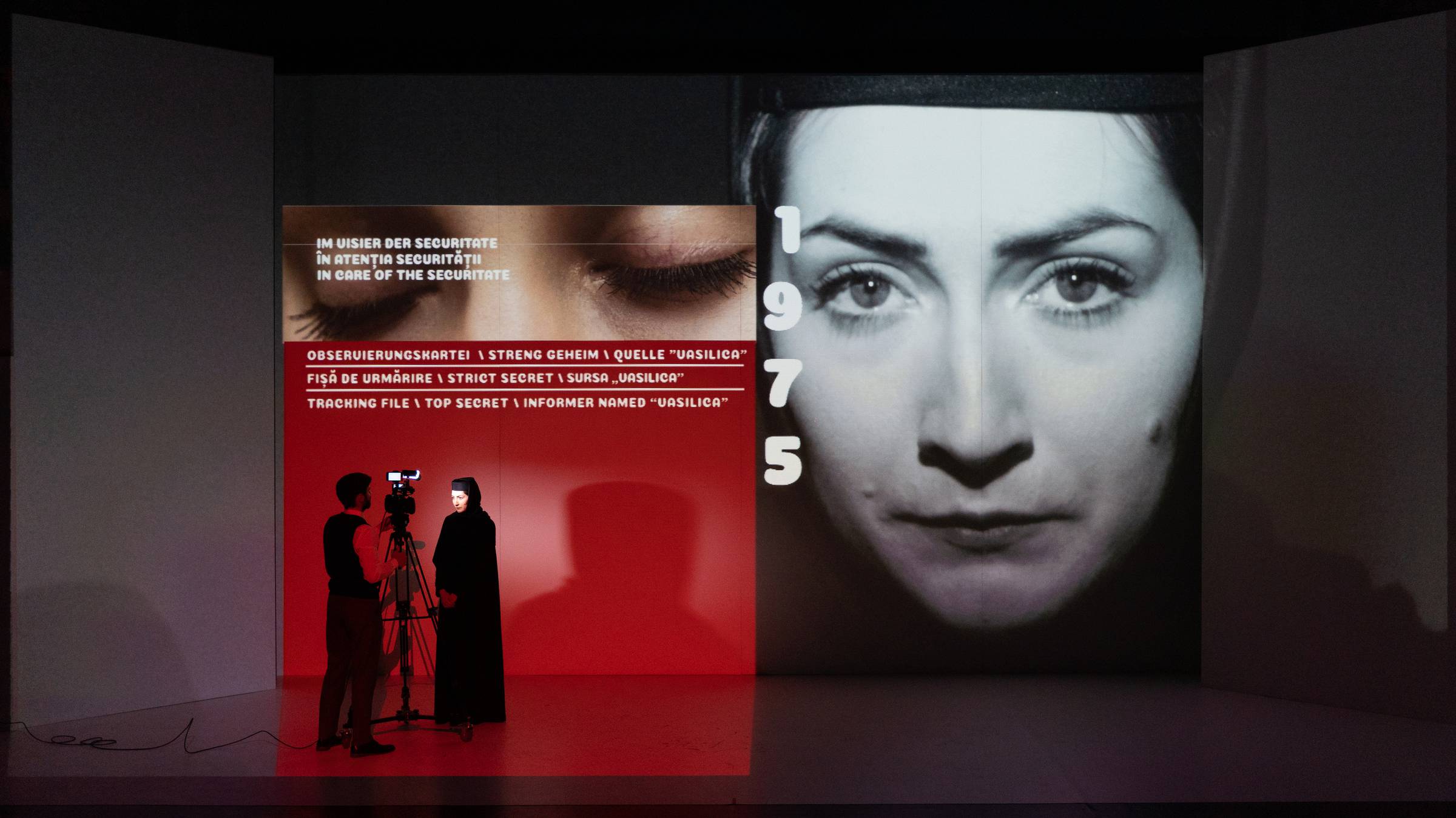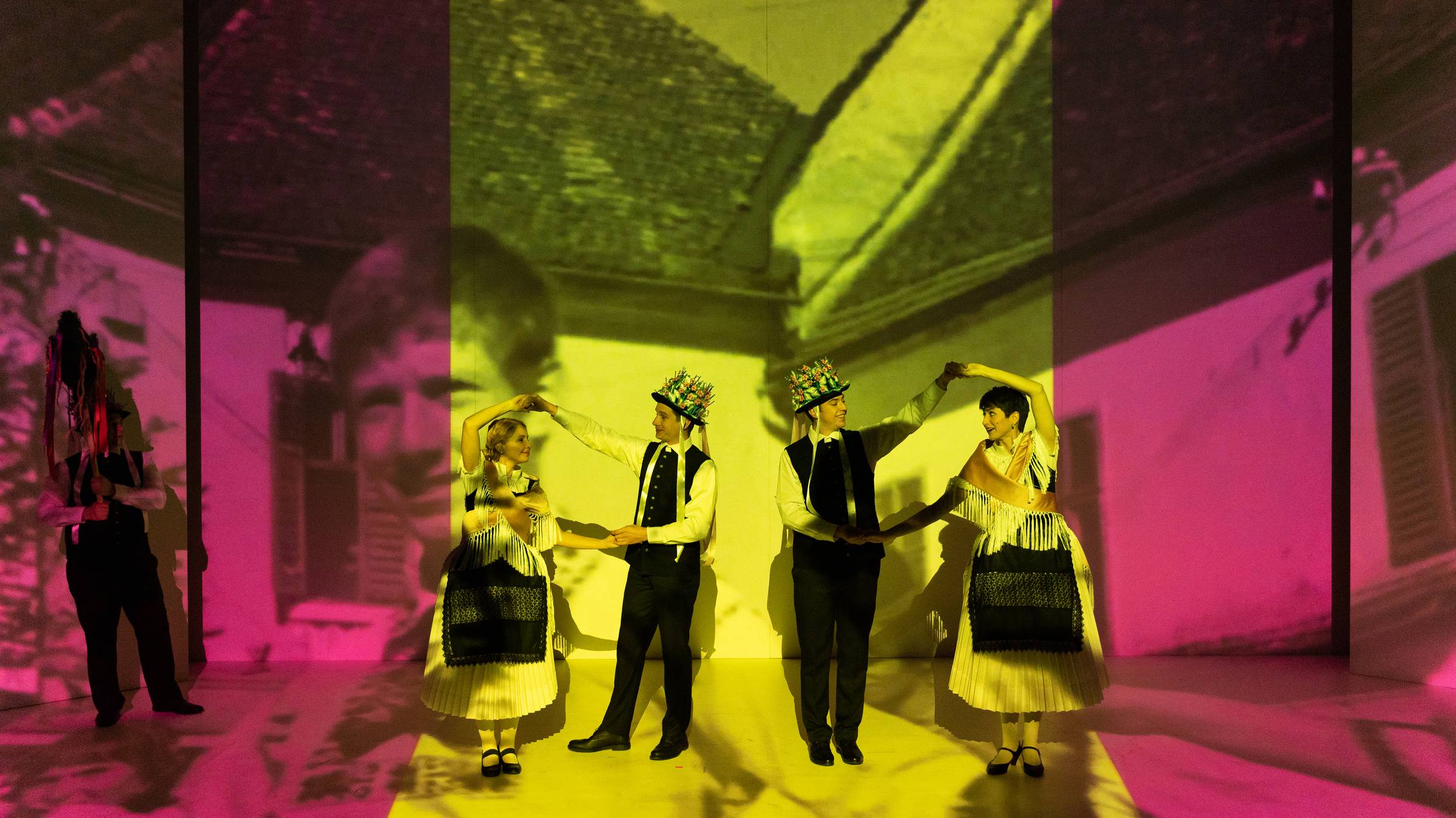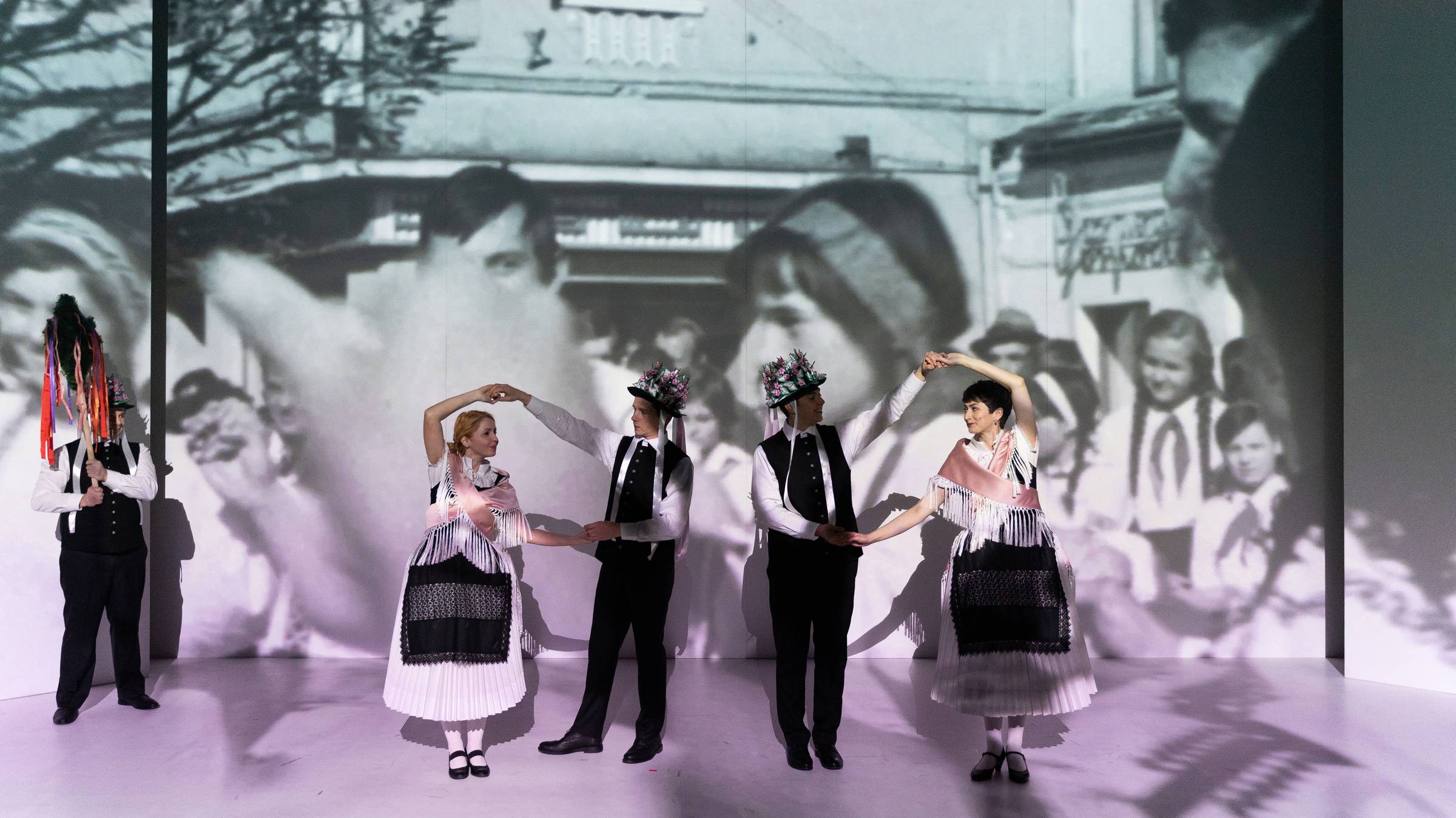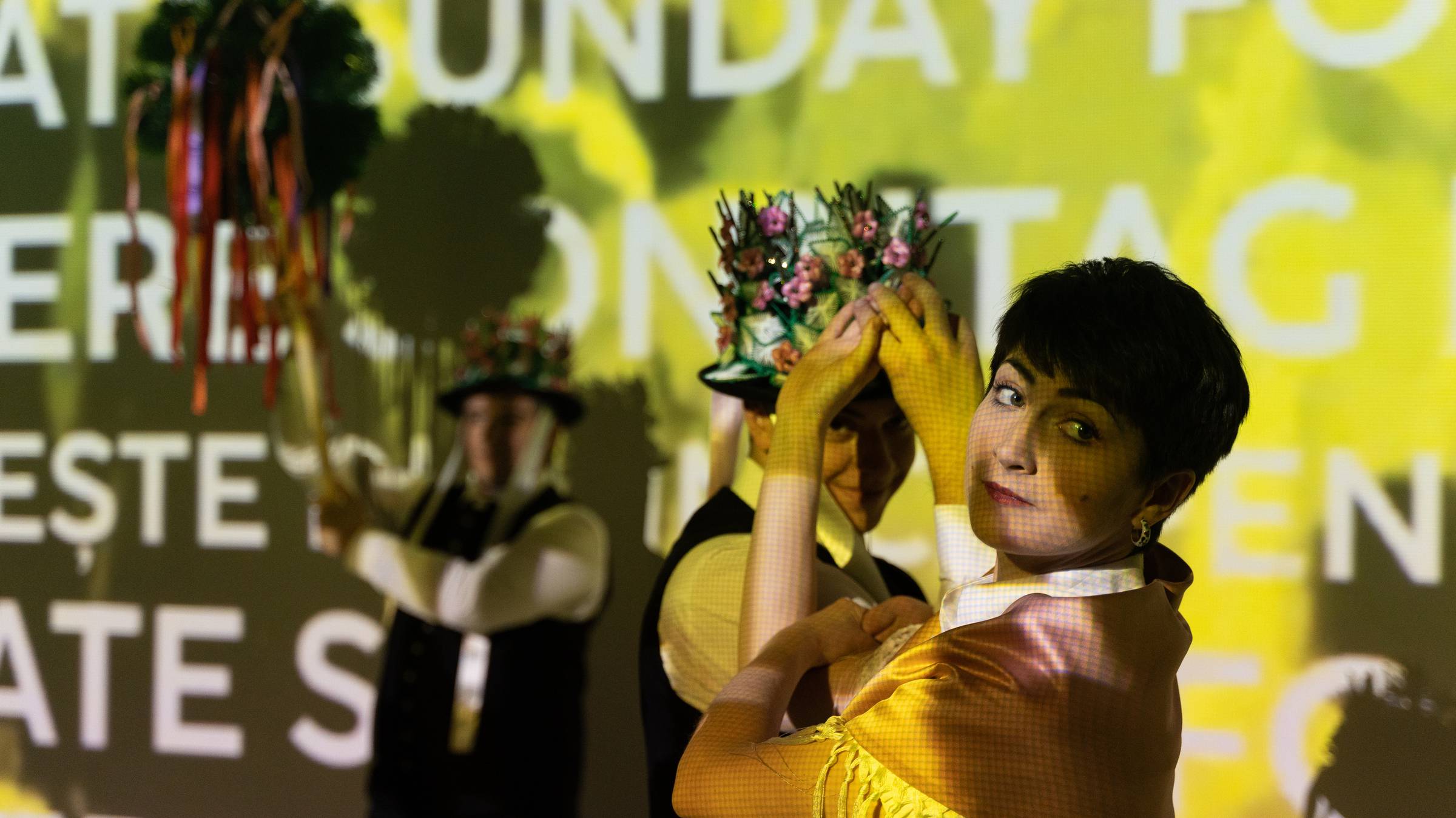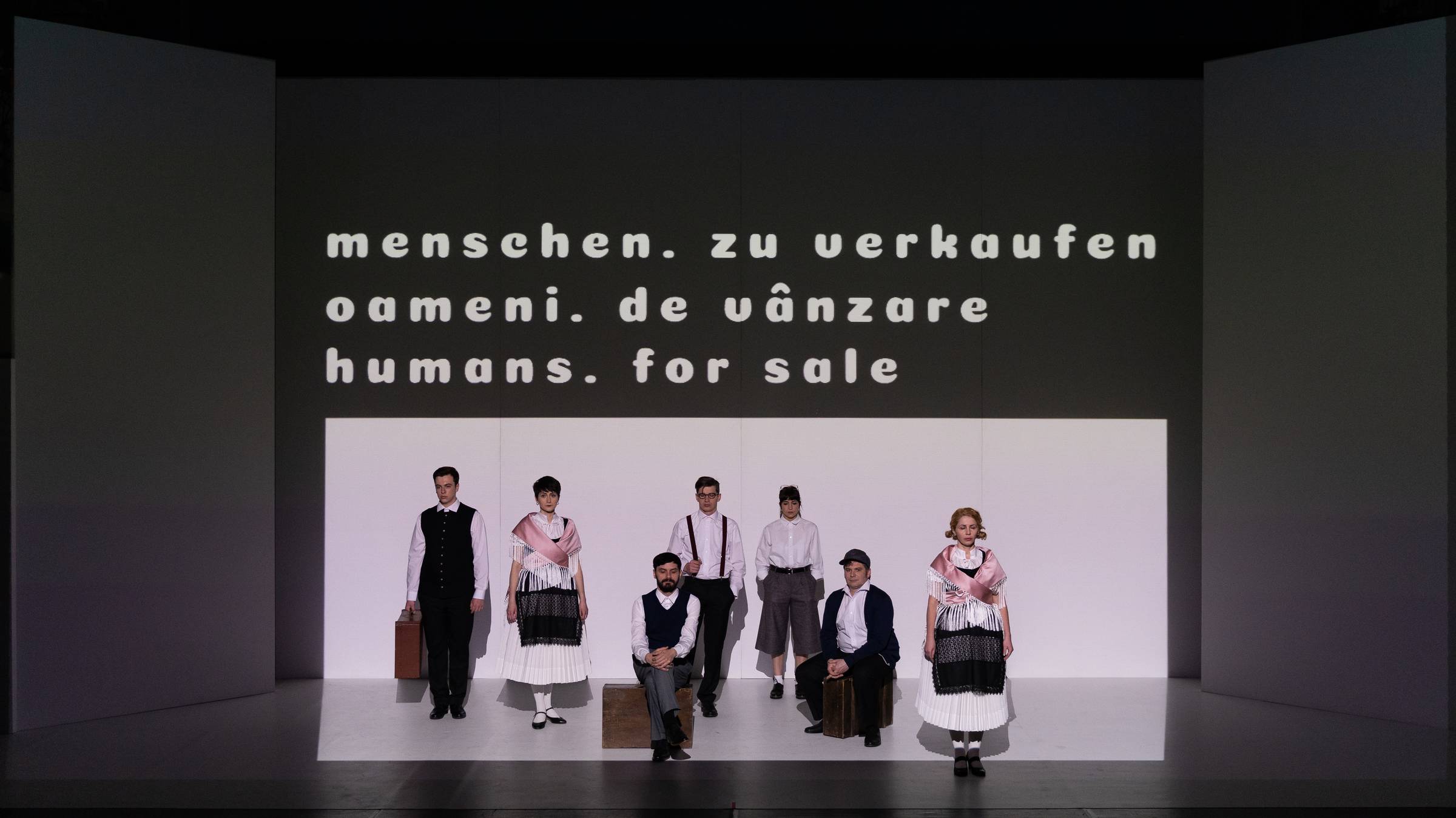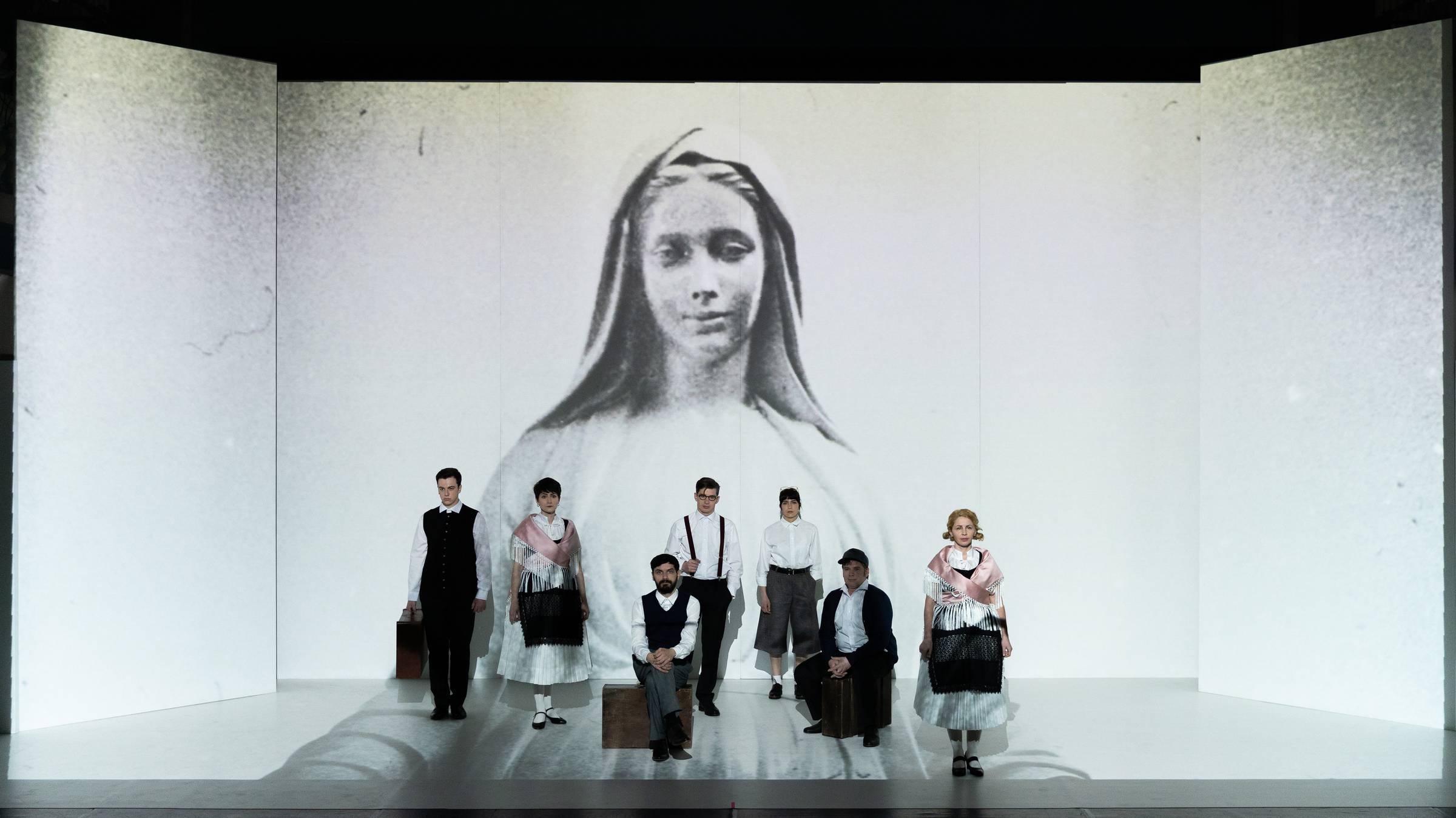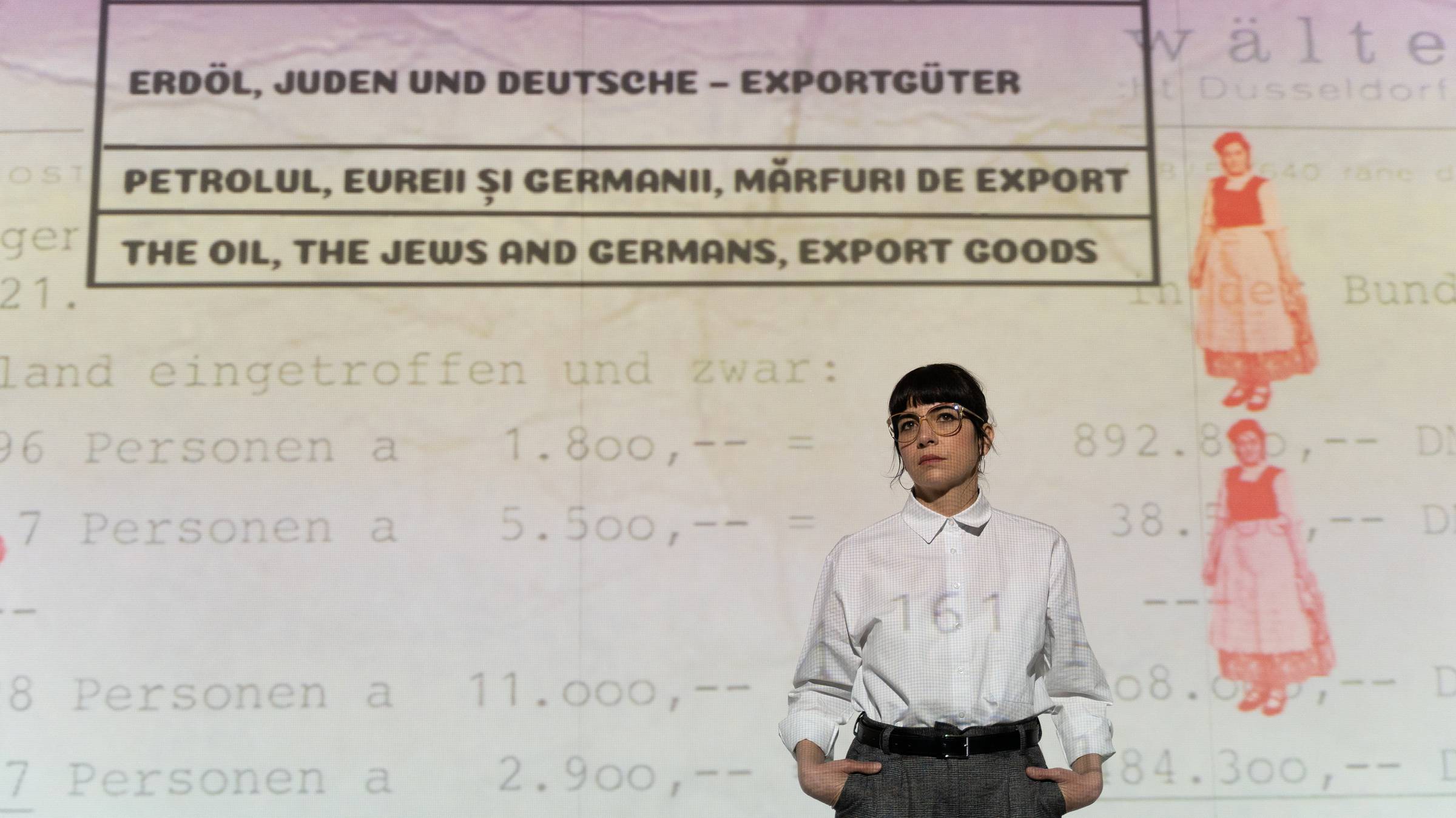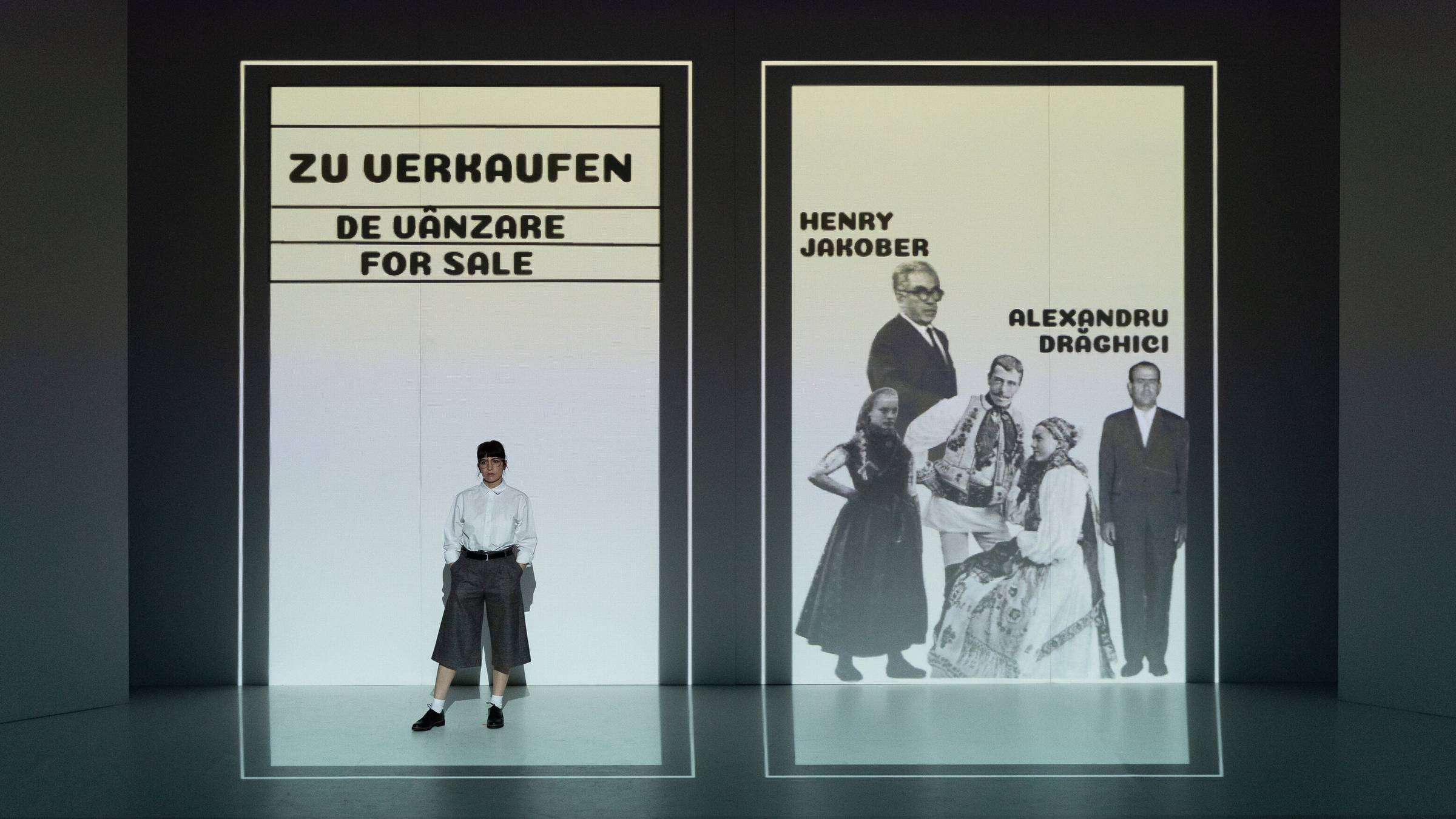
Humans. For sale
by Carmen Lidia Vidu –– Direction: Carmen Lidia Vidu (a.G.)
Surtitles: RO/EN
Age limit: 12+
Humans. For sale is Carmen Lidia Vidu’s second collaboration with The German State Theater after Romanian Diary. Timișoara. Her new project is, similarly to Romanian Diary, a documentary theatre, which brings together cinematography, photography and theater.
While official propaganda warned about the „chaos” of the free world, Romania underwent one of the largest human trafficking schemes of the 20th century. Humans. For sale tells the story of how, between 1969 and 1989, the Romanian German ethnics were sold by the Romanian government to the German Federal government. It is a performance which brings to the spotlight the overnight disappearance of an entire community, and the efforts made by its members to flee the hostile environment they were living in, while being vilified for their wish to leave in a friendly state, a free state.
Video appearances: Heinz Günther Hüsch, Stelian Octavian Andronic, Johann Schaas, Germina Nagâț, Mădălin Hodor, Hanni Hüsch, Cornel Hüsch
Surtitles: RO/EN
Age limit: 12+
Duration: 01:30
Cast
Ioana Iacob
Oana Vidoni
Daniela Török
Alexandru Mihăescu
Harald Weisz
Robert Bogdanov-Schein
Carmen Lidia Vidu (a. G.)
Multimedia
Cristina Baciu (a. G.)
Costumes and sets assistance
Ioana Popescu
Dramaturgy
Rudolf Herbert
Live camera and music
Ovidiu Zimcea
Illustrations
Gabriela Schinderman (a.G.)
Direction assistance
Richard Hladik
Make-up
Bojita Ilici
Technical direction
Adrian Georgescu
Press excerpts
After watching the documentary play, the following questions remain in your mind: can you really save man by treating him like a commodity? How do we relate to history? Do you negotiate with dictators or not? What is your price? How much money do you give for your life?
Anitta Pelin, cultural journalist
https://inbine.ro/oameni-de-vanzare-in-regia-lui-carmen-lidia-vidu-cat-costa-viata-ta/
The show Humans. For Sale created by Carmen Lidia Vidu at the German State Theatre in Timișoara is a documentary approach that brings to light the trade that the Romanian and German states have been neglecting for decades, which was made up of ethnic Germans. People. Living people. People traded on amounts entered in ledgers carefully kept by a very professional gentleman. People negotiated and categorised according to their level of education, on whom a lower or higher price was placed according to objective criteria. Romania wanted to become this "nationalist paradise" populated by vain Geto-Dacians and, if Germany was willing to talk about paying off the bills, why not take the opportunity to replenish its accounts emptied of overdue debts? And why shouldn't Germany regain its (un)natural sport and intellect and, and, and, and, and, while lending a helping hand to those who want to escape a society absurdly weaned on political policing and fear?
Alina Epîngeac, critic
https://epingeac.com/2022/05/06/oameni-de-vanzare-fapt-istoric-dar-nu-teatral/
A sample of quality documentary theatre, for which the author documented for two and a half years, searching sources in the Securitate archives, collecting testimonies and interviewing officials of the communist regime directly involved in the sale of ethnic Germans, as well as the German negotiator who managed to free 226,000 Saxons and Swabians. Their testimonies, as the last survivors of the process, can be considered historical, sources of documentation for researchers interested in studying the phenomenon. Carmen Lidia Vidu makes a selection of the immense material gathered in order to organise it into a rigorous and intelligible structure. She preserves the most relevant situations for the overall picture, defining scenes for a whole series of facts that took place in the process of selling - both Germans and Jews - under the Ceaușescu regime, the president who considered that "oil, Jews and Germans are Romania's best export commodities".
Cristina Rusiecki, critic
https://revistacultura.ro/cel-mai-mare-negot-de-oameni-din-europa-in-secolul-xx-un-spectacol-documentar-de-carmen-lidia-vidu/
The term I want to use in relation to your theatre is "immersive". This genetics of the histories that are part of me makes me responsible for the one next to me, because they are a part of this shared History that we live together. That's why I consider that you make a theatre of social responsibility, not just an exercise in aesthetic creation.
Florin Oprescu, cultural journalist
https://revista22.ro/interviu/teatrul-razvratit-si-cosmarul-istoriei-goi-in-fata-trecutului
Undoubtedly Carmen Lidia Vidu's most complex show to date, for which the director confesses to having researched, travelled, conducted interviews and read files for two years, "People. For Sale" tells the story of the sale of ethnic Germans by the communist regime in Romania, a sale that spanned several decades but was kept secret for decades by both Romanian and German authorities.
Alina Neagu, cultural journalist
https://www.hotnews.ro/stiri-cultura-25573123-nu-inteles-decat-tarziu-este-trauma-oameni-vanzare-povestea-primului-spectacol-despre-vanzarea-etnicilor-germani-catre-regimul-comunist.htm
What emerges from this mixture of confessions, memories, clarifications, historical contextualization? The cynical and pragmatic history of a trans-national "deal", in which it was not the people who counted, but the capital and the financial value obtained; the petty and painful history of the indulgences (i.e. the trafficking of influence - real or fictitious - of some employees in the Romanian administration to speed up the process of obtaining passports and visas, in exchange for benefits, obviously). What remained somewhat blurred - perhaps my own memory makes me more adept at this kind of discourse - was the history of personal tribulations, desperate hopes and dire despair of those waiting for their "salvation". But there was an emotional counterpoint: that song, to the tune of the Transylvanian anthem, sung by the last Saxon in Richiș, Johann Schaas, nostalgically celebrating the Transylvanian homeland of the Saxons and the Sabians.
Claudiu Groza, critic
https://tribuna-magazine.com/banii-sau-viata/
For Carmen Lidia Vidu, documentary theatre is a long-distance journey through which, as an artist, she relates to the present and the recent past. In a second collaboration with the German State Theatre in Timișoara, she has aesthetically archived a reality of Romanian communism, bringing history and theatre back together. Researchers Mirela Nagîț and Mădălin Hodor of the National Centre for the Study of Security Archives argue that between 1969 and 1989, the Romanian communist state sold more than 226,000 ethnic Germans for 400 million marks plus eavesdropping and surveillance technology for the repression apparatus, following 313 rounds of official negotiations. The commodification of the human being is the overall theme of this show. The grotesque-malefic weave of a very profitable trade in people before December '89 is analysed in a montage of objective (CNSAS documents) and subjective (statements of those involved, both from the German side - the Bonn negotiator, Heinz Günther Hüsch, lawyer and member of the Bundestag) and the Romanian side (party members and Securitate employees - Colonel Stelian Octavian Andronic; Romanians of German origin - Johann Schaas, the last Sas in Richiș). A profitable trade not only for the communist state, but also for groups in the party, the communist administration and the Securitate, who built up small parallel mafia-type networks from which they obtained money, valuables and real estate. A kind of "smart guys" who through corruption generated illicit income in an "entrepreneurial" spirit in total contrast to the egalitarian ideology of the "new man" and any moral norms. In the most authentic documentary spirit, the script refuses to be partisan, narratively reconstructing the context by resorting to concrete cases presented in multifaceted ways, assembled in a dynamic montage, on logically linked sub-themes. The general register is austere, in tones tempered to sombre, like the situation it speaks of.
Oltița Cîntec
https://www.observatorcultural.ro/articol/trei-zile-de-teatru-bun-la-timisoara/
Trailer
Photos
